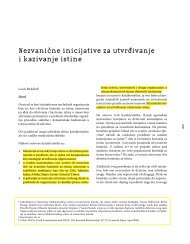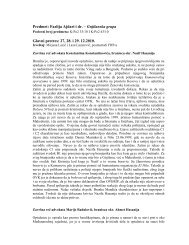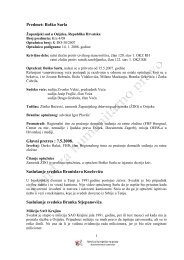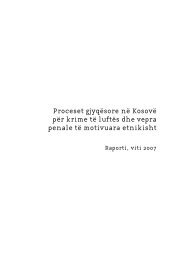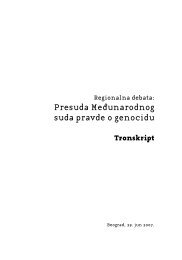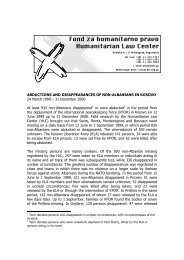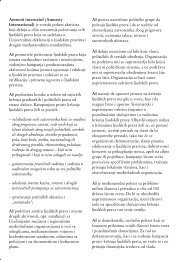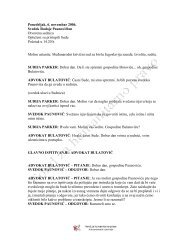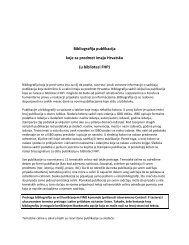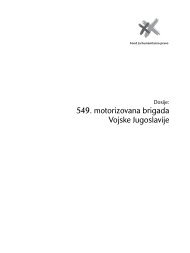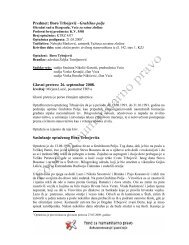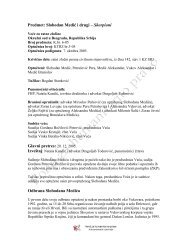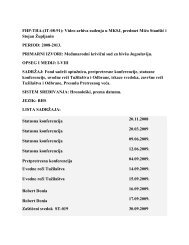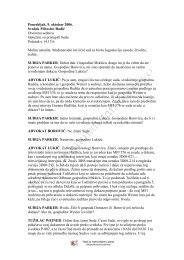here - Humanitarian Law Center/Fond za humanitarno pravo
here - Humanitarian Law Center/Fond za humanitarno pravo
here - Humanitarian Law Center/Fond za humanitarno pravo
Create successful ePaper yourself
Turn your PDF publications into a flip-book with our unique Google optimized e-Paper software.
that the courts are unjustifiably imposing lighter penalties than the relevant statutory minimum.<br />
When giving reasons for the penalties imposed, the courts describe mitigating and aggravating<br />
circumstances in general terms only.<br />
Imposing lenient penalties on war crimes perpetrators in post-conflict societies is certainly not<br />
helping to create the conditions necessary for the prevention of the recurrence of such crimes.<br />
7. Unprofessional conduct demonstrated by defense counsels<br />
Most defense counsels in war crimes cases do not behave professionally and ethically. Their<br />
activities are primarily aimed at obstructing and delaying proceedings by addressing trivial<br />
issues, engaging in petty politics and speculation about what lies behind the Office of the War<br />
Crimes Prosecutor's decision to bring an indictment against their clients. In doing so, defense<br />
counsels fail to properly fulfil their function of defending the interests of the accused and do not<br />
contribute to the quality of the proceedings.<br />
In their dealings with prosecutors and victims’ representatives they often display scorn and<br />
offensive behaviour, in doing so severely violating the counsel’s code of ethics. The way in<br />
which some of the lawyers in the Ćuška/Qushk case treated Mustafa Radoniqi, a lawyer from<br />
Kosovo who was representing the victims in this case, is the most striking example of such<br />
behaviour: when the prosecutor in one of the hearings mentioned evidence gat<strong>here</strong>d by the ICTY,<br />
defense counsel Goran Petronijević chimed in saying, “I trust Mustafa more than I trust the<br />
Hague Tribunal.”<br />
As in previous years, defense counsels were not seen to be adhering to the practices of the ICTY<br />
in defense of their clients. 21<br />
8. Proceedings conducted by courts of general jurisdiction fail to meet fair trial<br />
standards<br />
In 2012 the courts of general jurisdiction had three ongoing war crime cases –<br />
Orahovac/Rahovec, Kušnin/Kushnin and Miloš Lukić. The common feature of all these<br />
proceedings is that they have been unduly prolonged, something which can be attributed to<br />
inactivity on the part of the prosecution service and the courts, and the toleration of defense<br />
counsels' abuses of procedure with the aim of delaying the proceedings. The clearest example is<br />
21<br />
Report on War Crime Trials in Serbia for 2011, HLC, p.11.<br />
11




